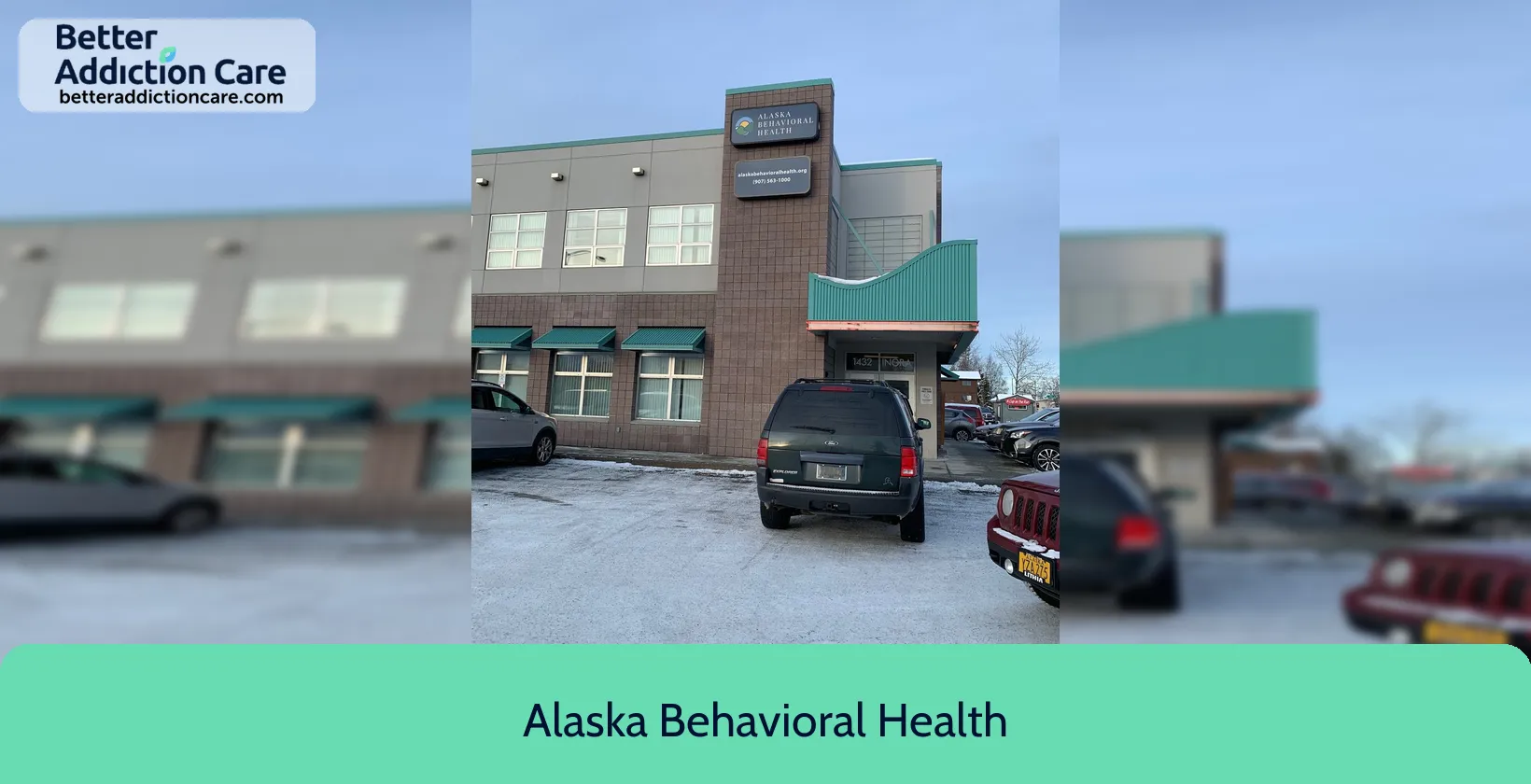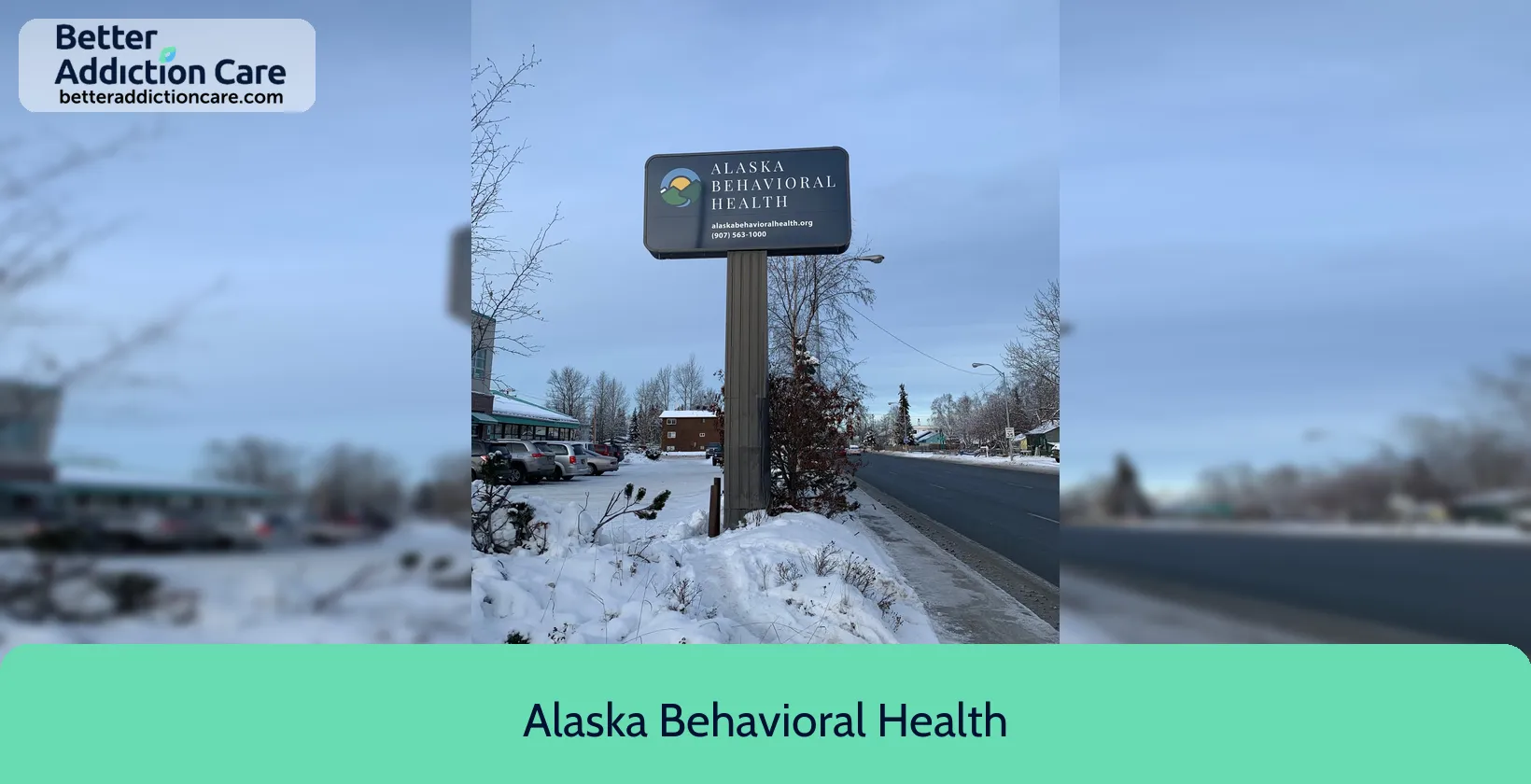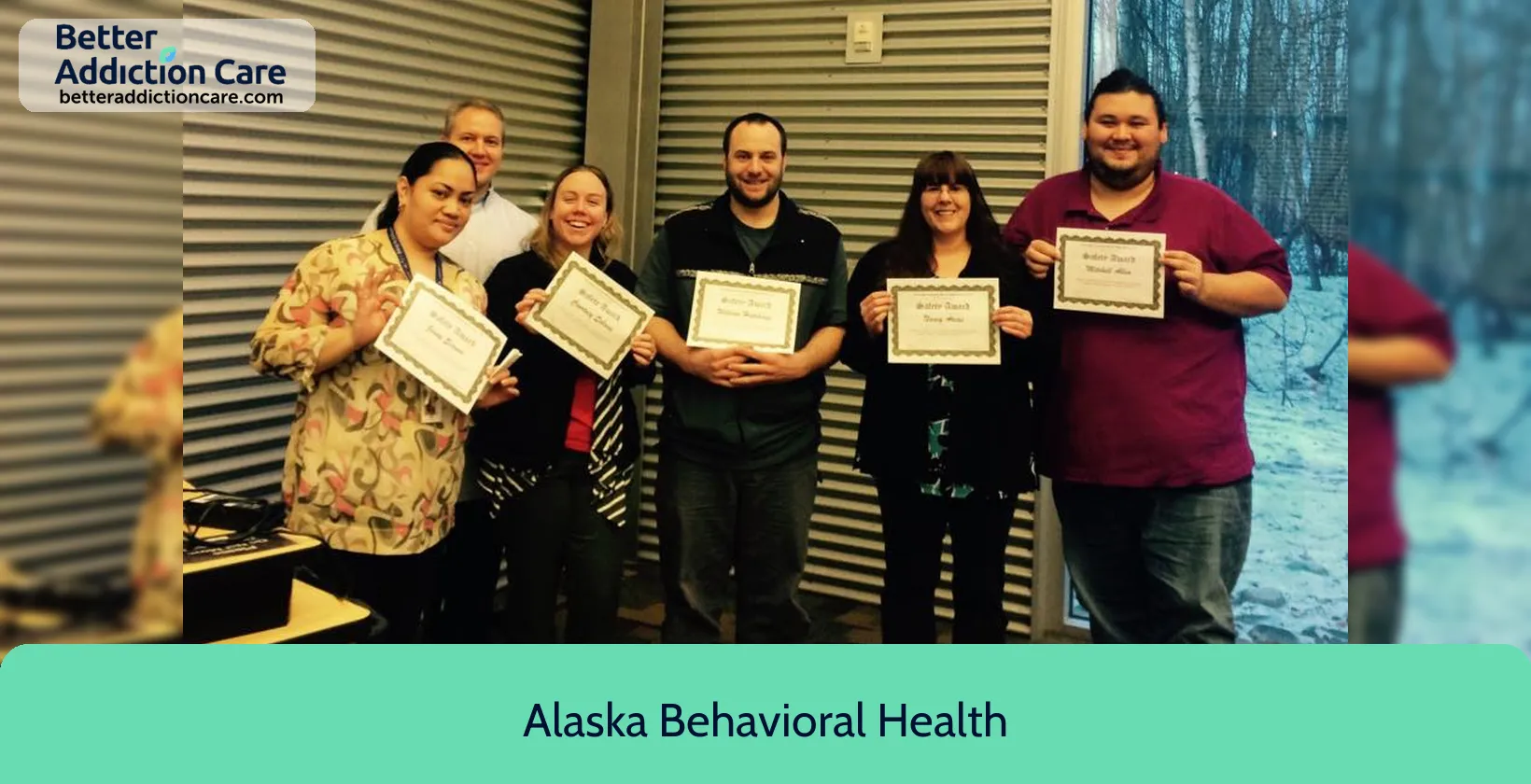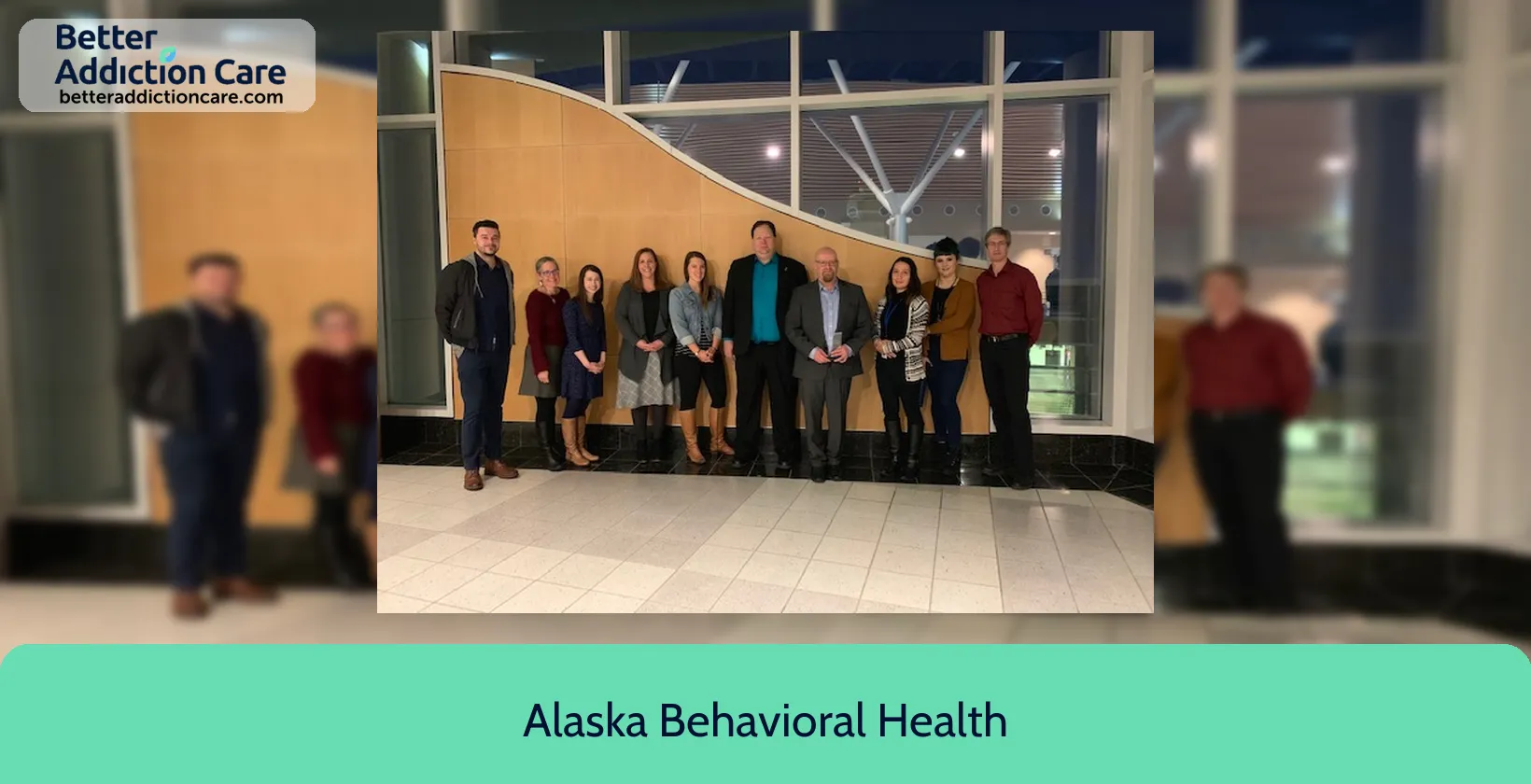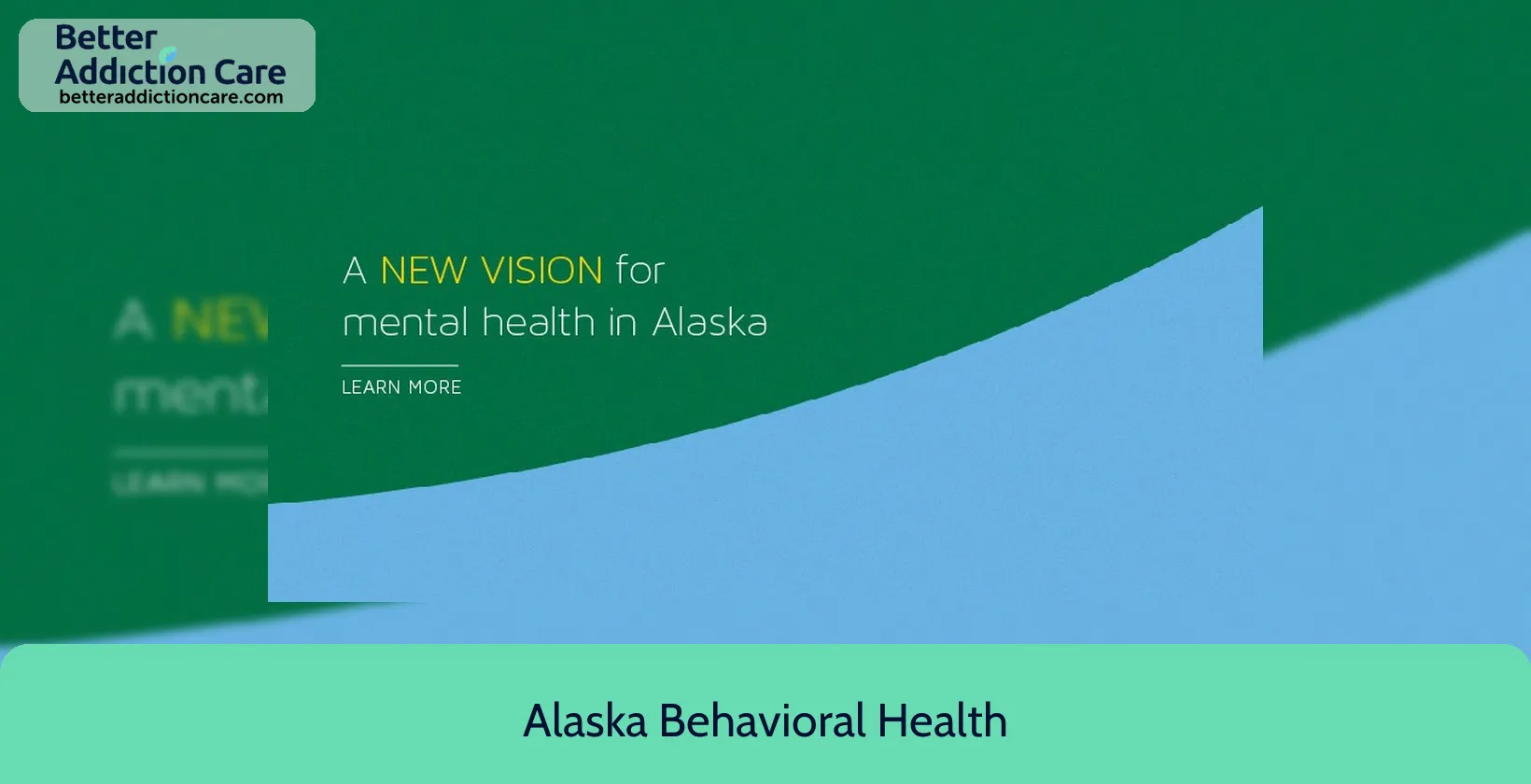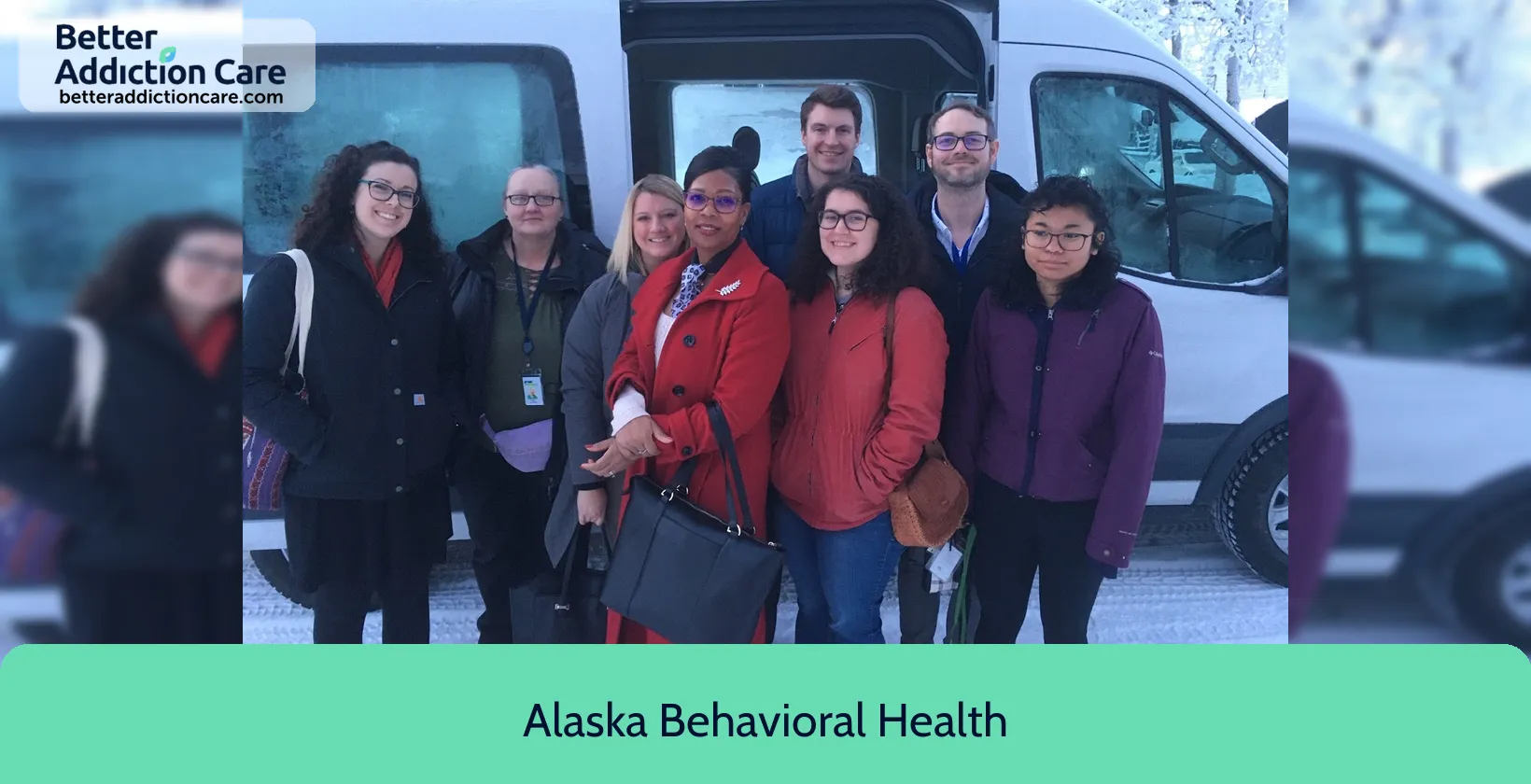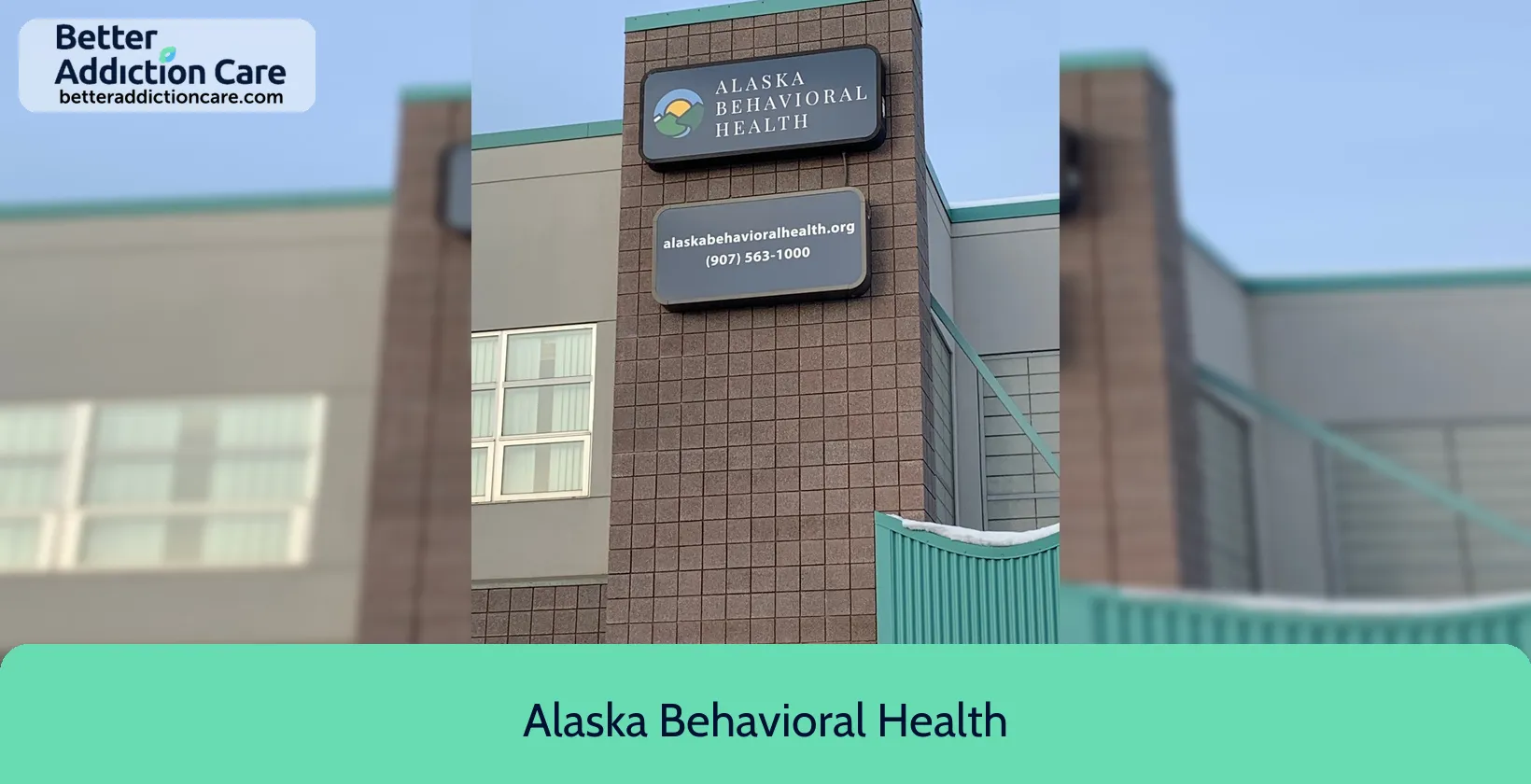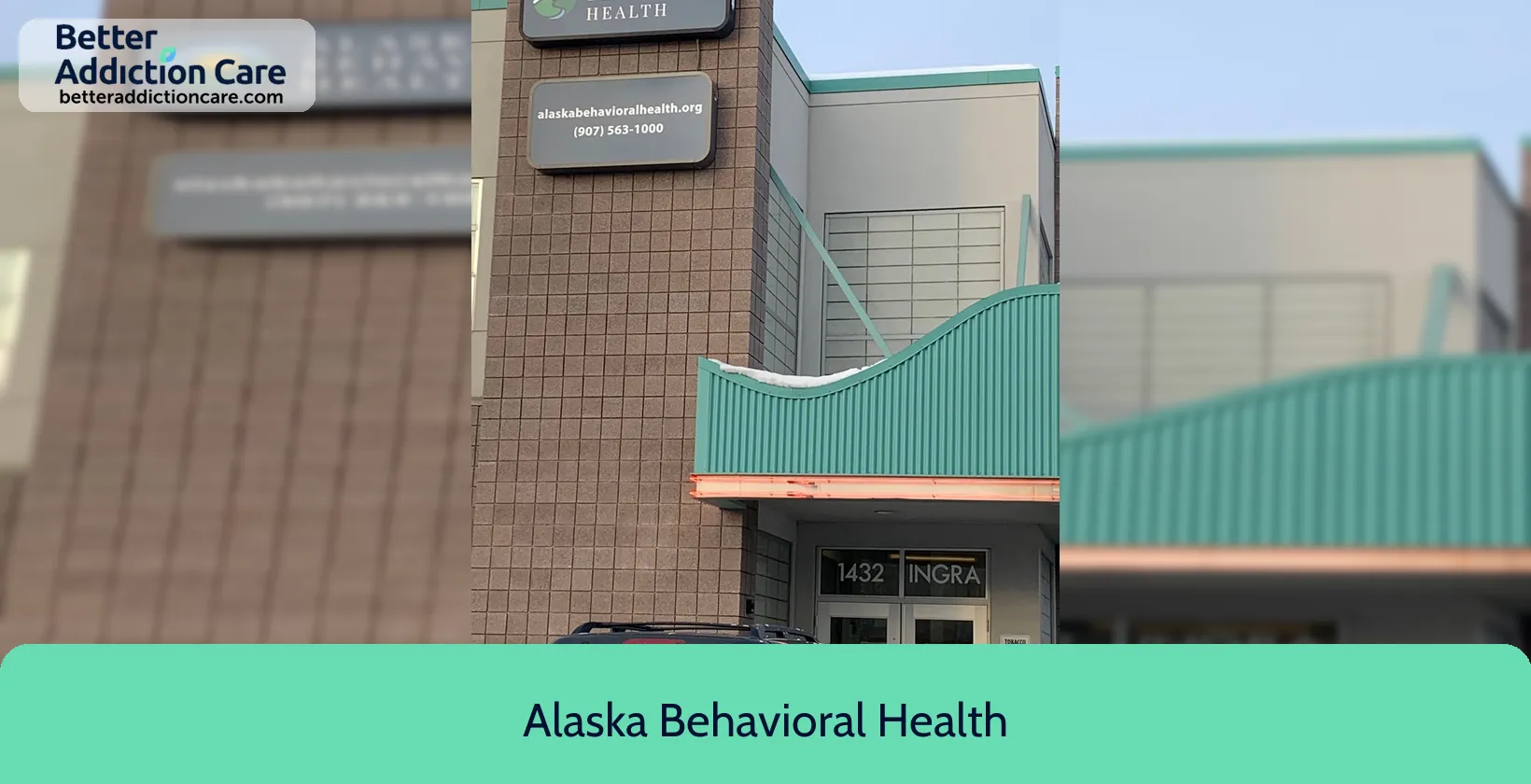Alaska Behavioral Health
Overview
Alaska Behavioral Health is a mental health treatment center for people seeking treatment near Anchorage County. As part of their treatment modalities for recovery, Alaska Behavioral Health provides group counseling, cognitive behavioral therapy, and dialectical behavior therapy during treatment. Alaska Behavioral Health is located in Anchorage, Alaska, accepting cash or self-payment for treatment.
Alaska Behavioral Health at a Glance
Payment Options
- Cash or self-payment
- Medicaid
- Medicare
- State-financed health insurance plan other than Medicaid
- Private health insurance
Assessments
- Screening for tobacco use
- Comprehensive mental health assessment
- Comprehensive substance use assessment
Age Groups
- Young adults
- Adults
- Seniors
Ancillary Services
- Assertive community treatment
- Intensive case management
- Case management service
- Court-ordered outpatient treatment
- Illness management and recovery
Highlights About Alaska Behavioral Health
6.68/10
With an overall rating of 6.68/10, this facility has following balanced range of services. Alcohol Rehabilitation: 8.00/10, Drug Rehab and Detox: 6.00/10, Insurance and Payments: 6.00/10, Treatment Options: 6.73/10.-
Alcohol Rehabilitation 8.00
-
Treatment Options 6.73
-
Drug Rehab and Detox 6.00
-
Insurance and Payments 6.00
Treatment At Alaska Behavioral Health
Treatment Conditions
- Mental health treatment
- Alcoholism
- Substance use treatment
- Co-occurring Disorders
Care Levels
- Outpatient
Treatment Modalities
- Group counseling
- Cognitive behavioral therapy
- Dialectical behavior therapy
- Integrated Mental and Substance Use Disorder treatment
- Telemedicine/telehealth therapy
Ancillary Services
Languages
- Sign language services for the deaf and hard of hearing
Special Programs
- Clients with co-occurring mental and substance use disorders
- Criminal justice (other than DUI/DWI)/Forensic clients
- Persons 18 and older with serious mental illness (SMI)
- Persons with post-traumatic stress disorder (PTSD)
- Persons experiencing first-episode psychosis
Get Help Now
Common Questions About Alaska Behavioral Health
Contact Information
Other Facilities in Anchorage

6.71

6.74

7.40

6.68

7.42

6.59

7.39
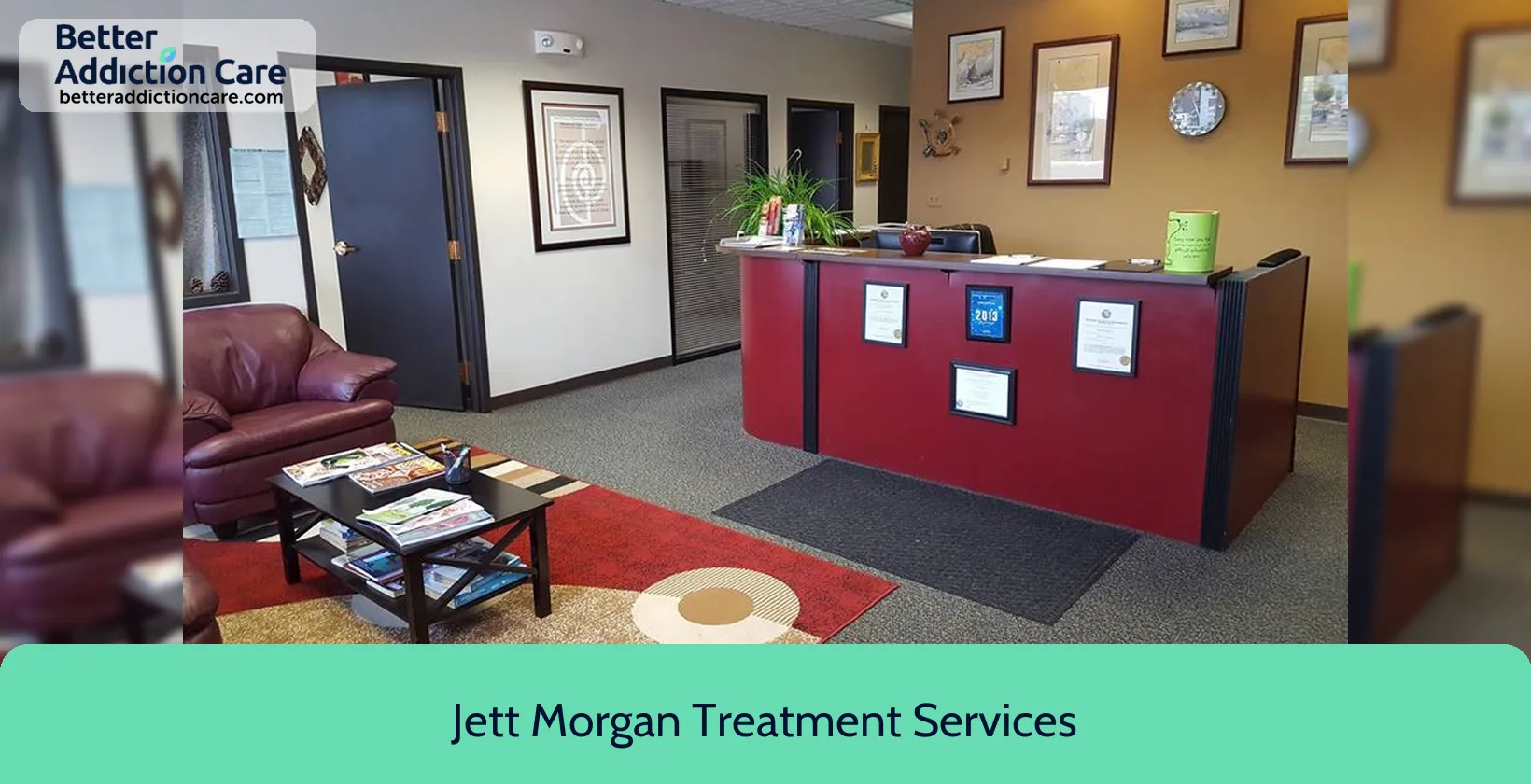
6.77
DISCLAIMER: The facility name, logo and brand are the property and registered trademarks of Jett Morgan Treatment Services, and are being used for identification and informational purposes only. Use of these names, logos and brands shall not imply endorsement. BetterAddictionCare.com is not affiliated with or sponsored by Jett Morgan Treatment Services.
